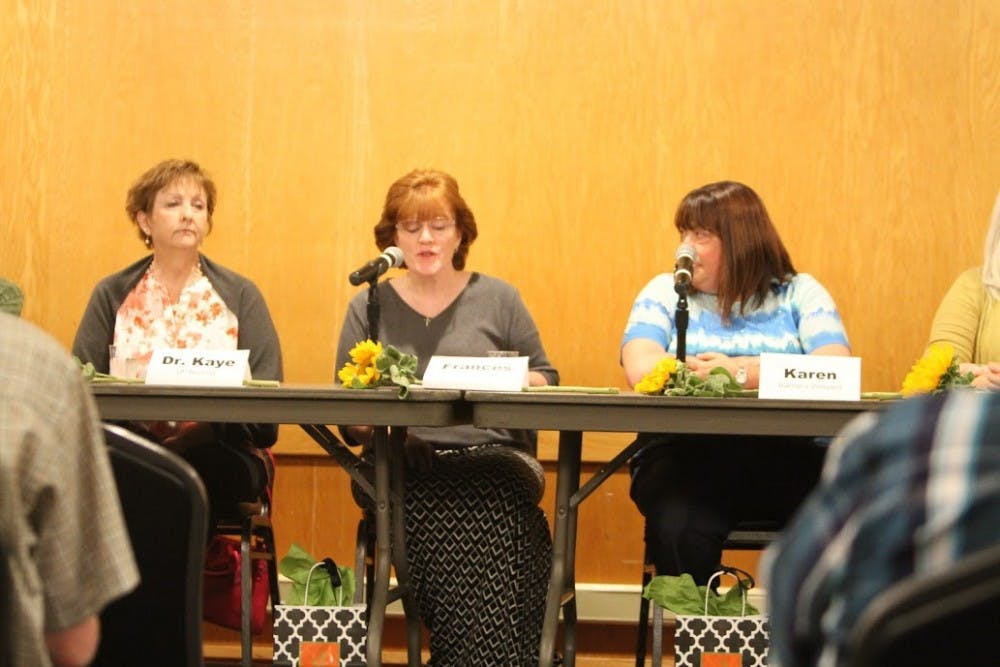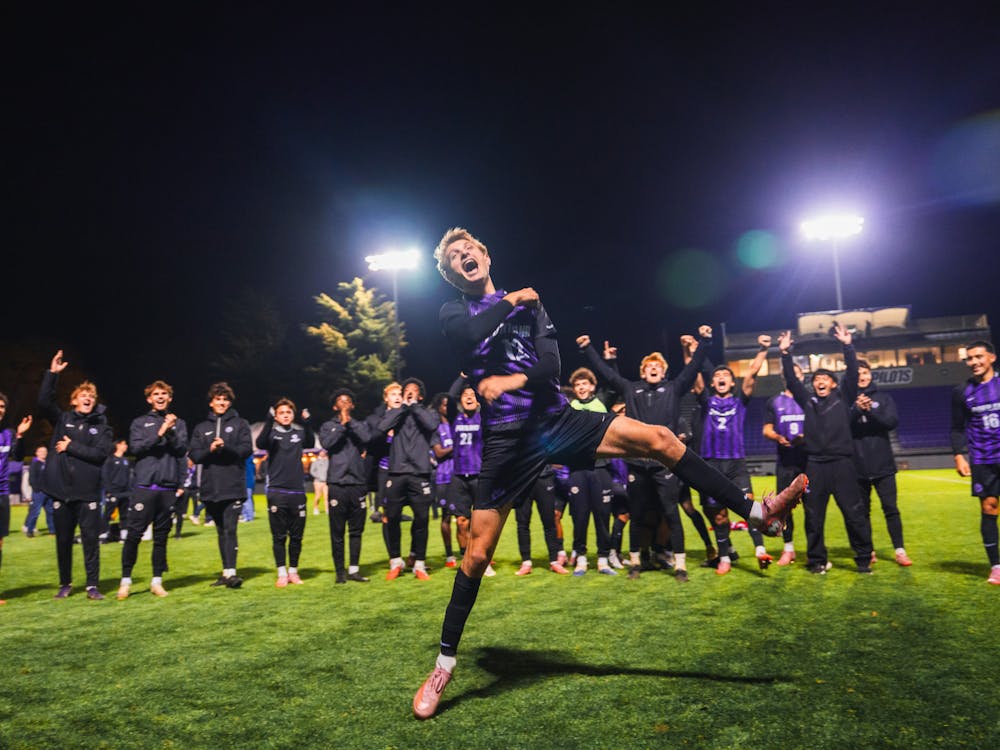Four women from religious post-abortion healing organizations and one UP faculty member shared their perspective on their experiences with abortion Thursday night at a panel presented by the Voice for Life club.
Panelists included Deborah Tilden, Frances Mack and Cindy Brunk from Silent No More Awareness, Karen James from Rachel’s Vineyard and UP nursing Associate Professor Kaye Wilson-Anderson.
Silent No More Awareness is “a campaign whereby Christians make the public aware of the devastation abortion brings to women and men.”
Rachel’s Vineyard is an international retreat program that helps women and men after abortion that “is offered in both Catholic and interdenominational settings.”
Roughly 60 students, faculty and staff attended the panel, including University President Fr. Mark Poorman.
The four panelists, who are activists for post-abortion campaigns, spoke about their experiences with abortion, the regret they felt years later and the recovery retreats that helped them to heal. But the similarities of the women’s experiences left some attendees feeling that they weren’t getting the full picture.
Tilden was the first to speak on the panel. After sharing her story of having an abortion when she was 19-years-old and finally confronting her pain 23 years later, Tilden said behind tears, “I really hope that after tonight, wherever you stand on the issue, we can have a caring, kind, civil dialogue.”
Though she herself has not had an abortion, professor Wilson-Anderson specializes in post-abortion care and healing, and shared some of the findings from her research during the panel.
When asked during the Q&A session what percentage of women suffer post-abortion trauma or regret, Wilson-Anderson said the current data suggest about one percent of the women interviewed by pro-choice researchers experience severe trauma, and 12 percent say they would not go through the procedure again.
“If we take that one percent and we multiply that times the number of persons who have had an abortion to date since 1973, that would be 600,000 women in the United States alone,” Wilson-Anderson said.
Wilson-Anderson also addressed the topic of contraception during the Q&A, saying that more education was necessary to understand how it works and its effects on the body.
“But even with contraception, nine times out of 10, if there is a pregnancy that is unwanted those people have been using contraception,” Wilson-Anderson said. “So what’s the problem? Lack of knowledge, lack of understanding how it works, lack of constantly using it the way it’s supposed to be utilized.”
The University Health Center does not offer condoms or fill birth control prescriptions.
Voice for Life Vice President Catherine Jacobs said she thought the panel was important because it encourages dialogue about the issue of post-abortion healing.
“I thought it was good to have (these panelists) because the content was specifically what happens after an abortion, and I think that that dialogue in the media today and in general isn’t talked about,” Jacobs said. “But it’s important because women may end up hurting after and don’t know how to help themselves and people don’t know how to help them because they don’t know what has happened.”
Senior Michael Shively said he learned a lot from the panelists, but expected the topic of the panel to be different based on the description of the event.
“I was glad I came so I could understand the perspective of someone who is post-abortive, because it’s hard to hear that from an experienced person,” Shively said. “However, I thought it was going to be more like, ‘How can the community come together to give support?’ and not from a political or opinionated stance. I thought it would be more moderate in talking about the healing.”
Fr. Charlie McCoy, adviser to the Voice for Life club, closed the night by outlining the on-campus resources available to students who may be experiencing an unintended pregnancy.
Susan Chisum is the Health and Counseling Center’s pregnancy support advocate and can help those who are pregnant. According to their website, the Health and Counseling Center offers free pregnancy tests and can help offer referrals to outside resources.
Psychology professor Deana Julka is the faculty pregnancy advocate and is another confidential campus resource.








